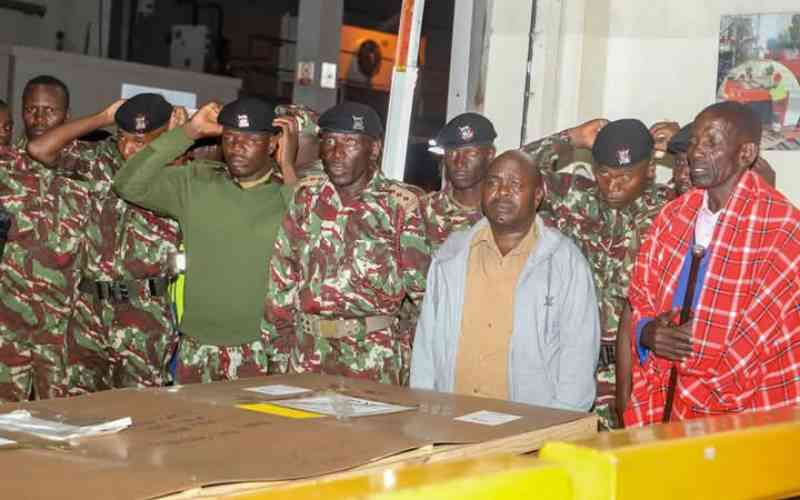One police officer was killed and another injured following a clash with Somalia's National Intelligence and Security Agency (NISA).
According to a police report seen by The Standard, five officers who were manning the Kenyan border were caught unaware and attacked by group of Somalia NISA officers.
"One of the officers was fatally shot in the stomach and another on the left upper hand during the attack from Somalia's NISA forces that ensued on March 14, 2025." The police report reads in part.
The report added some assorted firearms belonging to the deceased officer and a national police reservist respectively are also missing and allegedly in the hands of the Somalia forces. The officer who was injured was rushed to Mandera referral hospital for treatment.
"The Somalia Nisa officers also robbed one G3 gun that carries 60 rounds and an AK 47 rifle with 30 rounds of ammunition." Added the report
It is suspected that the attack was a revenge of a previous arrest of terror suspects who were charged with planning to abduct Chinese workers in Mandera
"The attack was co-ordinated by a brother of one of the suspects who is a Nisa officer as per the information from Somalia authorities." said the police. By Ibrahim Adan Ali, The Standard






